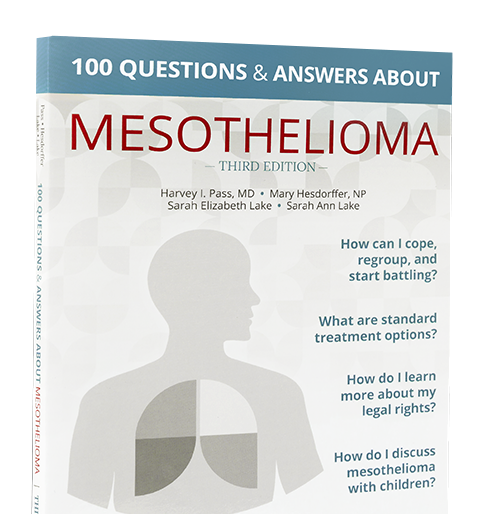A new study suggests that platelet-derived growth factor receptor beta (PDGFRB) gene could be a potential path to mesothelioma therapies. The research group conducting the study investigated the expression status of 119 candidate cancer genes in malignant pleural mesothelioma (MPM) tissues and cell lines. The group discovered that among the identified genes, one of the most interesting was PDGFRB encoding for the platelet-derived growth factor receptor beta. According to the group, “it has been suggested that the PDGF/PDGFR-beta interaction could be involved in the carcinogenesis of various tissues, including osteosarcoma, meningiomas, melanomas, neuroendocrine tumors, ovarian, pancreatic, gastric, lung, prostate cancers, and MPM, with both autocrine and paracrine mechanisms of growth stimulation. In agreement with this, it has been shown that PDGFRB is also associated with the aggressive behavior of several types of tumors.”
In the study, published in Genes & Cancer, the group concluded that, “given the role of PDGFRB in cancer, a plethora of PDGF/PDGFR pathway inhibitors are available and assayed in clinical trials for leukemia, gastrointestinal stromal tumors (GIST), and glioma. Thus, it is of interest to explore whether MPM patients may also benefit from the use of these agents”
“To this end, in the present work we studied the effect of PDGFRB inhibition in MPM cell lines. The approaches included the use of gene silencing and PDGFRB inhibitors. The results support PDGFRB up-regulation as a cancer-driver mechanism and suggest this receptor as a candidate therapeutic target worth being exploited in the treatment of this disease.”
The group noted that PDGFRB (platelet-derived growth factor receptor beta) was already suggested as an MPM-cancer gene by previous research groups.
One of the largest PDGFRB involved studies being conducted today encompasses seven major pharmaceutical companies and up to 16 different drugs. In the study, 15 groups of cancer patients will receive a drug that specifically targets certain genetic mutations. Called TAPUR (Testing the Use of Food and Drug Administration Approved Drugs That Target a Specific Abnormality in a Tumor Gene in People With Advanced Stage Cancer), the study is being sponsored the American Society of Clinical Oncology (ASCO).
Sources
A, Jenny. "Clinical Trial: Testing Already FDA-Approved Drugs for Specific Gene Abnormality in Advanced Stage Cancers." The Myeloma Crowd. CrowdCare Foundation, 13 Apr. 2017. Web. 03 July 2017.
Crawford, Kate. "ASCO's TAPUR Study Continues Its Expansion of Sites, Participants, and Collaborators." ASCO. American Society of Clinical Oncology (ASCO), 04 June 2017. Web. 03 July 2017.
Mutti, Luciano, Ombretta Melaiu, and Stefano Landi. "Inhibition of the Platelet-derived Growth Factor Receptor Beta (PDGFRB) Using Gene Silencing, Crenolanib Besylate, or Imatinib Mesylate Hampers the Malignant Phenotype of Mesothelioma Cell Lines." Genes & Cancer (2017): n. pag. ImpactJournals.com. Genes & Cancer, 01 Feb. 2017. Web. 03 July 2017.





